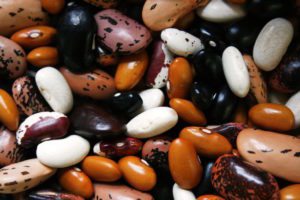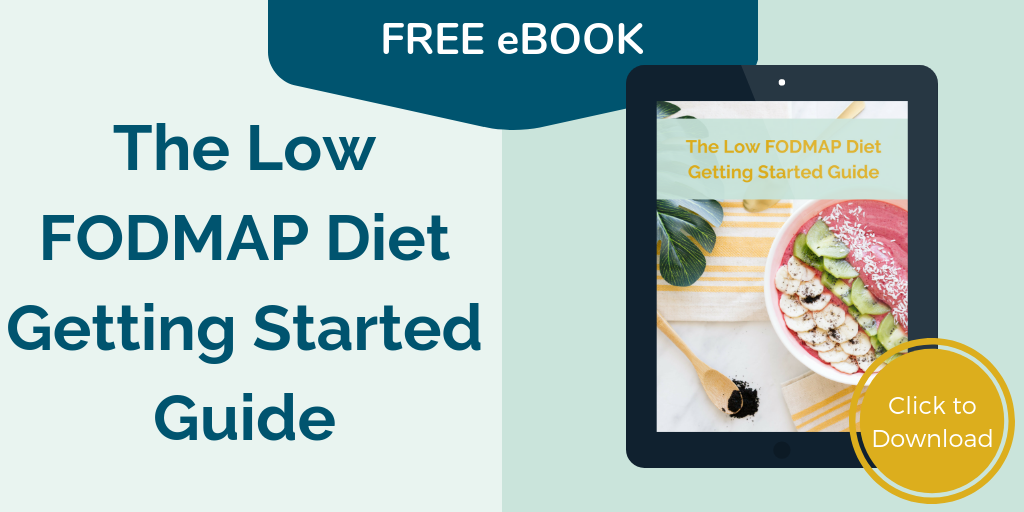IBS Supplements
Digestive Enzymes for IBS
Have you ever wondered if there are any supplements you can take to help with your IBS symptoms? Sometimes it can get overwhelming trying to keep up with the long list of foods you need to avoid on the low FODMAP diet. Adding something in, like a supplement, can seem like a much easier option than continually cutting things out. But is it effective?
You may have heard of digestive enzymes as a popular solution to your symptoms of gas, bloating, abdominal pain, diarrhea and constipation. Our bodies produce many types of digestive enzymes for the different types of food we commonly eat. If we don’t have enough of a certain type of enzyme, that symptom-triggering food doesn’t get digested properly. The thought is, if you can take a supplement form of these digestive enzymes, then you should be able to go on eating that symptom-triggering food without symptoms, instead of having to cut it out.
Lactaid and Beano are two common digestive enzymes. Lactaid helps your body break down lactose, and Beano helps with GOS. GOS stands for galacto-oligosaccharides, which is just one of the FODMAP groups. GOS is found in high levels in foods like lentils, chickpeas, green peas, lima beans and kidney beans.
Enzyme Therapy for GOS Sensitivity
A study out of Monash University looked into the benefits of enzyme therapy for reducing IBS symptoms. The study looked at whether a digestive enzyme supplement called alpha-galactosidase (more commonly known as Beano) could help those with issues digesting GOS.
They study included 31 people with IBS who were randomly divided into 3 treatment groups. One group was given the full-dose of the enzyme, another group only half a dose, and the third group was given a placebo. Participants were asked to follow a low FODMAP and low fibre diet for three days.Then, for the next three days they received their assigned treatment. During the three day treatment, all food was provided to the participants. The meals provided were low in all FODMAP groups except for GOS. After receiving three days of the treatment, participants were asked to allow any symptoms to resolve before starting the second and third parts of the study. The same process was followed for the remaining two treatments, so researchers could compare how each participant responded to each treatment group.
This type of study design has a few benefits. When we expose the same person to multiple treatments, they act as their own control. What does this mean and why is it important? In the research world, it’s important to have controls so you can see if your treatment or intervention actually had an effect. The control is consistent throughout – it is the baseline that you use to compare all your results.
In some studies, the population of participants recruited is divided into two groups: the group that receives the treatment or intervention, and the control group which doesn’t receive the treatment or intervention. This setup is good too, but it’s impossible to avoid differences in characteristics between the two groups. Certain characteristics like the gut microbiome and genetics are really hard ones to match up, and these differences can definitely impact how effective or ineffective a treatment may be.
When participants act as their own controls, as in this Monash study, the differences between groups are eliminated! The same person that the treatment is tested on is also exposed to the placebo, so changes in response between the two exposures can be accurately measured. This means we can have more confidence in the results of the study.
Wait, hold up… do we need to back up a little and talk more about the Low FODMAP diet? If you aren’t sure what this is or if you should follow it, OR if you are following it but you don’t have all the info you need, I can help. Download my free eBook to help you better understand this diet and get started implementing simple steps to get rid of symptoms like gas, bloating, pain, diarrhea or constipation related to IBS. Click here to get a copy emailed to you right away.
FODMAP Reintroduction
So what did the researchers find? First, adding GOS to the diet of the participants after they had become symptom-free after following a completely low FODMAP diet only caused symptoms in two thirds of the study group. This result indicates that 66% of the group was sensitive to GOS while 33% were not! Not everyone is sensitive to all types of FODMAPs. This is why it’s so important to go past the elimination phase and start adding those FODMAPs back in, one at a time, to see exactly which ones you are sensitive to and which ones you can tolerate!

Does Beano Work for IBS?
Symptom relief was only found in the group that received a full dose of the digestive enzyme. In the case of this study, the full dose received by participants was 300 GALU (GALU is short for alpha-galactosidase units). Since Beano contains 150 GALU per tablet, this means you would need to take 2 tablets to reach the same dose as the study intervention.
The study found that taking the supplement at a particular time may help with effectiveness. Participants took ½ the enzyme right before their meal and ½ during their meal. So one tablet of Beano right before sitting down to eat, and the other tablet half way through eating.
The study did not find a difference in symptom improvement based on IBS subtype. This result suggests that identifying individual FODMAP sensitivities may be more important for determining the best course of treatment than whether your IBS makes you more prone to suffering from constipation or diarrhea.
If you are sensitive to GOS, a digestive enzyme like Beano could help reduce your symptoms. It’s worth working your way through elimination and reintroduction to see if you are actually sensitive to GOS before turning to a digestive enzyme. These results are particularly important if you are following a vegetarian or vegan diet while avoiding FODMAPs, as GOS is mainly found in vegetarian protein sources such as beans and legumes.
You can access the full research paper here, or read the research summary from the Monash University blog.
As always, it’s best to work through any dietary changes or supplements you might be considering with a Registered Dietitian who is a digestive health and IBS expert. Sometimes supplements themselves can contain high FODMAP ingredients and other triggers that may cause them to do more harm than good. Real, whole, nutritious foods should always be the number one priority, but there can also be a place for supplements like digestive enzymes for those who have identified specific food triggers.
Wishing you much love & wellness,
Stephanie


